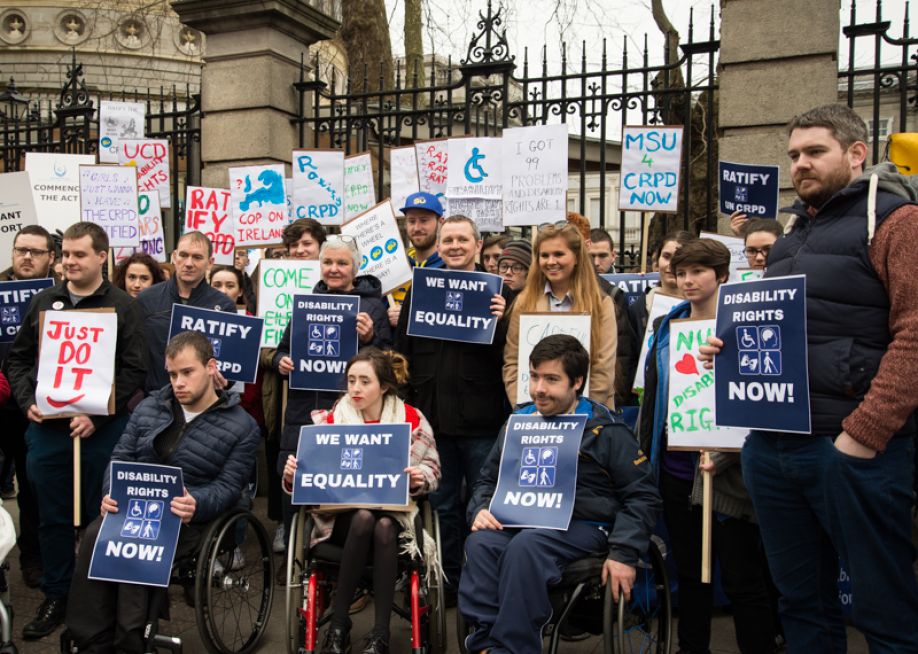As humans we are born with the ability to talk, to think, to learn, to grow. But what if you were denied some of those natural abilities – if you weren’t born with them?
This is the case for millions of people all over the globe. Often disabilities are hidden and we might not realise they exist. We all take notice of our own lives and as we become older, we take responsibility for ourselves. But for those children who grow up with a learning or physical disability, taking responsibility for themselves can be one of life’s biggest challenges.
Children who don’t learn or grow at the same rate as others are often severely overlooked or ignored. Sometimes it’s hard not to overlook something we can’t see, but we can try and be aware of this. We should try to look beneath the shell on the outside and see the potential struggle that might be happening within.
This topic is close to home for me and my family. My little sister Lucy has a genetic disease known as Noonan syndrome, which causes growth, learning and physical issues that affect her everyday life. She has undergone several surgeries since she was six years old. Now, Lucy is realising some of her differences like her height, her inability to run as fast as her friends, her very curly hair that nobody else seems to have and so many more. For Lucy, these differences are what she calls ‘unique’. Lucy sees her problems as an opportunity to be the best she can be. She will gloat about how small she is, and she will tell you that she is super special and super strong, and in her words ‘I am a ninja because I have ninja syndrome’ (which is her abbreviation for her genetic disorder). For many children this isn’t the case because they have been told by the media, by people around them, and by society that their differences make them inadequate to people considered ‘normal’.
But if I was to judge who the funniest, the happiest, the most amazing, kind, brave and irreplaceable person in my life is, it would be Lucy. I’m sure people reading this who have a child or a friend with bigger needs than their own or a ‘disability’ can agree it makes them even more fantastic. They fight through so much physical and mental pain throughout their lives and knowing somebody is that strong gives you more of an appreciation of their existence.
So when we refer to these children and adults who may have what health professionals and the media consider a ‘disability’ or a ‘disadvantaged life’ or ‘special needs’ or some other overused and offensive terms, I think we should rephrase to something like ‘extraordinary’, ‘unique’ and ‘one of a kind’. Rephrasing how we view people and children makes all of the difference. That way people who use a wheelchair won’t have to be looked at and defined by a ‘disability’ but by their ‘extraordinary’ way of living instead. That way children like my sister who learn at a slower pace in maths won’t be considered ‘behind’ or ‘disadvantaged’ when they are given help, but just struggling like any other child might be, whether they have a medical diagnosis to define it or not.
People who fall under this category may feel ashamed to admit their diagnoses, but I think it should be something we make people proud of. Although they shouldn’t be defined by it, they should own it. They should be given help and opportunities like everybody else and, if anything, these truly one-of-a-kind people should be idolised and looked up to for their strength every day to survive and to continue learning, growing and walking at whatever pace they can.
I have met and read about some amazing siblings of extraordinary people, mothers and fathers who are not only just as incredible as their relative, but who have understood and allowed themselves to be patient when learning or growing or talking was slower for their loved one; when a diagnosis took too long or was too gruelling of a process to sit through; when filling out paperwork to find the perfect school took hours, and the many phone calls that had to be made when their child or sibling was considered to be ‘angry’ or ‘violent’ in the classroom. I see you all. You have made such a difference to their lives in what can be a very discriminating and cruel world. I especially want to shout out my mum and dad and my other sister Holly, who have been just incredible with understanding Lucy when others didn’t.
To finish, I just want to remind anybody who has been told themselves how ‘disadvantaged’ they are, that you are a warrior. You are unstoppable. You are unique. You are extraordinary in ways other people can’t be.
And to society – ‘There is no greater disability in society, than the inability to see a person as more’.
Every area has a SEND local offer which gives information about the services and support available to children and young people with Special Educational Needs/Disabilities and their families. If you want to find out about support available to you or a member of your family this is a great place to start, you can find it by looking on the internet for *your area* SEND Local Offer.


